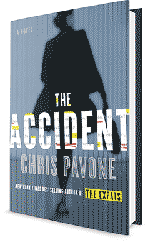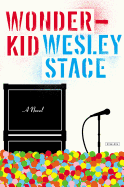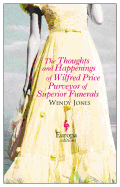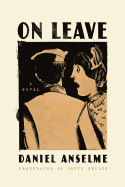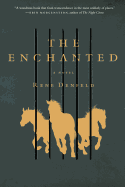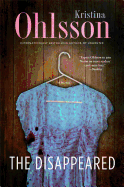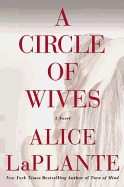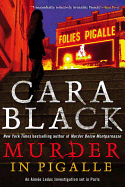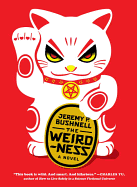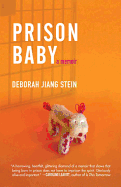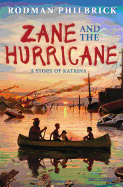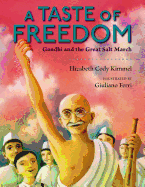 |
| photo: Nina Subin |
Chris Pavone is the author of The Expats, which was a New York Times, USA Today and international bestseller, published in 20 languages on five continents. The Expats is in development for a movie, and won the 2013 Edgar Award for Best First Novel. Pavone grew up in New York City, attended Midwood High School in Brooklyn and Cornell University, then worked at a number of publishing houses over nearly two decades. He's married and the father of twin schoolboys, as well as an old cocker spaniel, and they all live in Greenwich Village and the North Fork of Long Island. Pavone recently spoke with us about his adventures in publishing, his passion for local businesses, and his penchant for sharp plot turns.
Like The Expats, The Accident involves expat spies. How were your experiences writing the two novels alike and different?
Everything about writing the two books was completely different. I began working on The Expats while I was an actual expat, a stay-at-home parent in Luxembourg, a first-time novelist writing completely on spec, with no publisher, no confidence, no experience, no sense of whether what I was doing was anything other than crap. I revised the manuscript forever; I added 200 pages, and then deleted 199 of them. This whole thing was like sitting in the dentist's chair for two years straight: constant discomfort, and pain possible at any moment.
I learned a lot of lessons writing The Expats, mostly about how I might avoid torturing myself in the future. Work on The Accident was much smoother, with a lot less time and effort--and pages--wasted. In the end I'm very happy with how both books turned out, but the process for the second was much more enjoyable; it almost never felt like dental work.
The Accident is mainly set in the publishing world. Tell us about your experiences in this arena.
Beginning in 1990, I worked at eight publishing outfits of vastly different sorts. At my first position at a book publisher, Jackie Onassis had the office at the end of the corridor. I copyedited Pat Conroy's passages as he wrote them out of a hotel on the Upper East Side; I read printer's proofs for John Grisham books while on-press at the plant in West Virginia; I revised newspaper articles in a Times Square office wearing my winter coat, when the heat had been turned off because we could no longer pay the rent. I edited with Giada De Laurentiis at her house in L.A., then went to a Beverly Hills party to hammer out a book tie-in to a TV show with an author whose publicity appearance on Today I watched a few months later--from the hospital delivery room where my wife was in labor with our twins. She asked me to turn off the television when the doctor couldn't hear the babies' heartbeats over the noise. I was a copy editor and a managing editor and an acquisitions editor, a proofreader and an associate publisher, a ghostwriter, and the author of a little book about wine [The Wine Log] that consists almost entirely of blank pages. I've done a lot of different publishing things, in a lot of different places, and nearly all of them were fun.
While the publishing industry plays an enormous role in the book, as does espionage, you also shine a hard light on corruption in the corporate world. What made you decide to include this aspect?
The Expats was an espionage novel that's fundamentally a book about marriage--about intimacy and honesty. The Accident is a thriller that at heart is a book about ambition, about the people we really become on the path from our ideals to our realities. I think very few ambitious people emerge from successful careers unscathed by corruption--not only the corruption that surrounds us, but also the ways we allow ourselves to be corrupted. To me this is a central theme of life; I wanted it to be central to this book.
How do you keep your plot twists so tightly ordered when you have so many?
The outline is my best friend, and I spend a lot of time nurturing our relationship, revisiting and revising the chapters, the sequence of reveals. But like any friendship, we sometimes have disagreements, and I end up wanting to do things of which the outline does not approve. Luckily, the outline is a one-page word-processed document, while I'm a person who can hit the delete button. Which is to say that I always win these disagreements. I'm not rigidly bound to my plan, but it really helps me to have one.
Your characters speak fondly of independent bookstores. Do indies hold a special place in your heart?
I prefer independent shops in general, especially my local ones, and I try to buy everything within a half-mile radius of home. I want to live in a vibrant neighborhood, and vibrancy is created in large part by retailers, who, of course, need customers to survive. So I make sure that I am one.
Beyond these selfish motivations, I'm also inclined to transfer my money into the cash registers of small-business owners who are hardworking members of local communities.
And of course, yes, there's something very special about an independent neighborhood bookstore, about a business based on curatorial expertise and knowledgeable hand-selling and long-term customer relationships.
What are your plans for your next project?
In The Expats, my goal was for readers to be mostly in the dark about what was at stake for the better part of the book; the question wasn't simply who did it, but what it was. In The Accident, I wanted to create a microcosm in which there are antagonistic characters--life-threateningly antagonistic, in fact--but not really any bad guys. And for the project I'm currently fiddling with, I'm constructing a world in which the protagonist--and readers--are for a good long while completely wrong about what's going on. I like stories that take enjoyable sharp turns, and those are the types of books I'm trying to write. --Jaclyn Fulwood
Chris Pavone: Sharp Turns
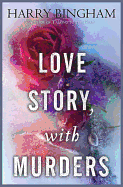 That was the final hook for me, and I happily recalled I had the first book on hand, Talking to the Dead (Bantam, $15).
That was the final hook for me, and I happily recalled I had the first book on hand, Talking to the Dead (Bantam, $15).


